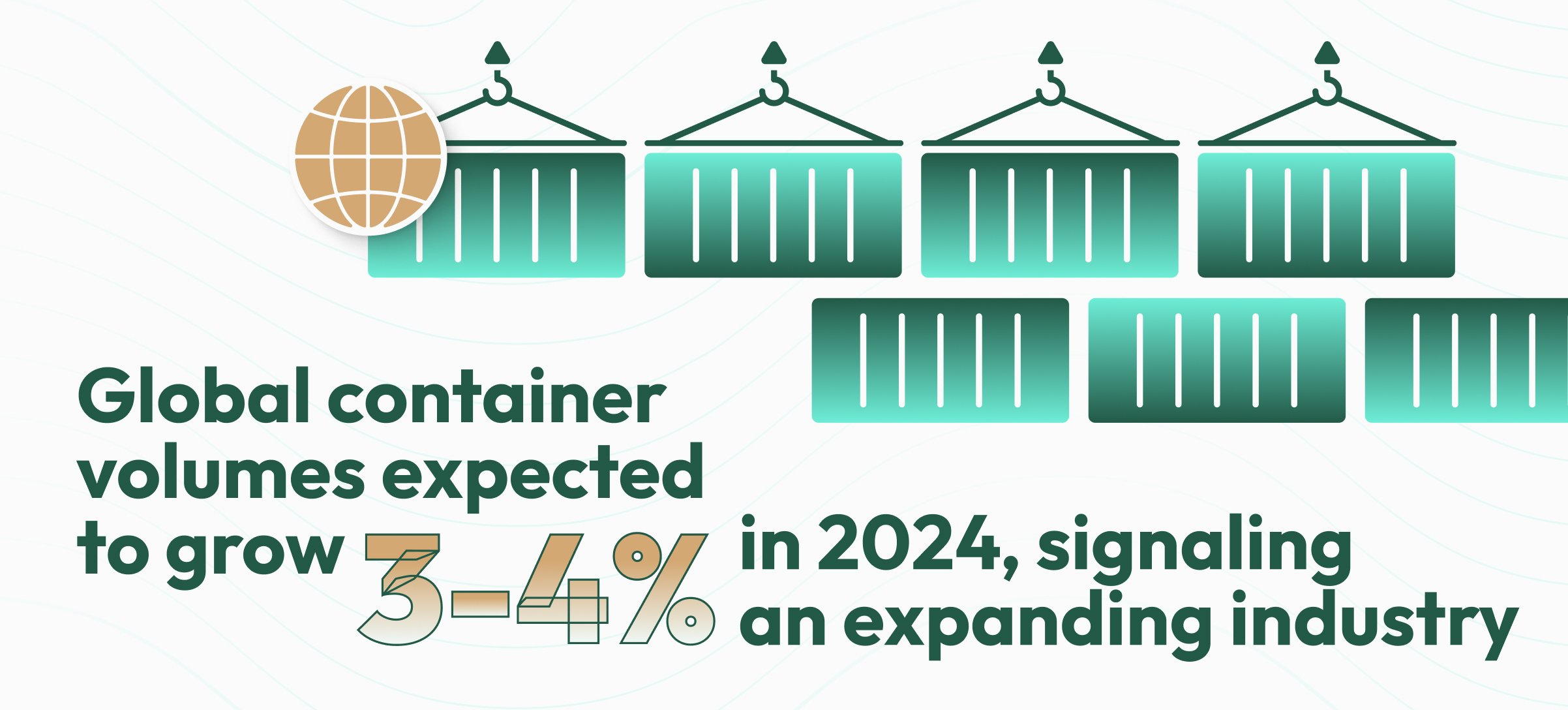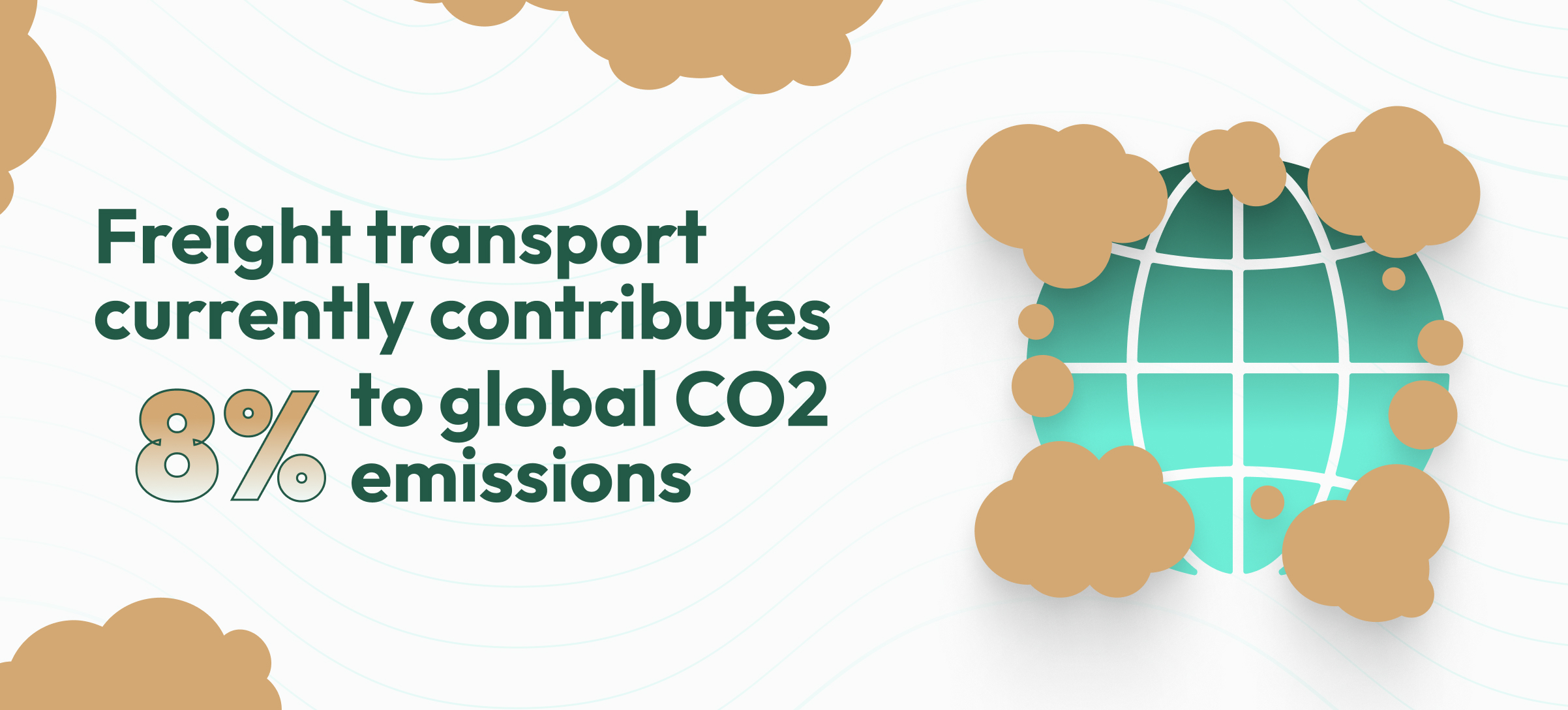Hybrid Synergy: Silq’s Solution to Adapting Freight Forwarding Strategies for Emerging Markets

In an ever-evolving global marketplace, the logistics and supply chain sectors are witnessing a transformative shift. As businesses venture into new, often uncharted territories of emerging markets, they face a unique set of challenges. These challenges are not just logistical but also encompass cultural, regulatory, and infrastructural aspects. Emerging markets, with their vast potential, are becoming increasingly important in the global trade ecosystem. However, navigating these markets requires more than traditional logistics strategies.

This is where the role of freight forwarding, particularly in the context of third-party services, becomes pivotal. In recent years, freight forwarding has undergone significant changes, adapting to the complexities of modern global trade. With growth in global container volumes projected at 3% to 4% in 2024, the industry is preparing to meet future demands more effectively.

Furthermore, nearly half of CEOs now consider supply chain responsibility a key part of their sustainability strategy, indicating a shift towards more sustainable practices in the industry. This shift towards sustainable logistics is becoming increasingly important, with freight transport accounting for 8% of global CO2 emissions. This figure is predicted to rise to 42% by 2050, indicating a significant opportunity for freight forwarders to contribute to sustainability
Moreover, the industry's move towards digitalization, with a focus on advanced technology solutions like enhanced 'track-and-trace' capabilities, is revolutionizing how freight is managed across borders. This digitization is not just a trend but a necessity, fostering agility, flexibility, and improved operational efficiency to meet the changing demands of global trade.
However, digital solutions alone are not enough. The human element, particularly in the form of on-site inspections, plays a crucial role. These inspections ensure that goods are not only transported efficiently but also meet the required quality and safety standards, which is crucial for maintaining trust and reliability in new markets.
In this blog, we'll delve deeper into how businesses can adapt their freight forwarding strategies for emerging markets, focusing on the synergies between technological advancements and on-site inspections, and the strategic use of third-party freight forwarding services to navigate the complexities of these new trading landscapes.
The Critical Role of On-Site Inspection Crews

In the complex landscape of global supply chains, particularly in emerging markets, on-site inspections are vital for ensuring quality and efficiency. These inspections serve as a critical check against the increased costs and negative impacts associated with supply chain disruptions. Notably, 84.6% of businesses face increased operational costs due to these disruptions, while 54% report adverse effects on both logistics and reputation. This underscores the importance of on-site inspections in mitigating risks and maintaining supply chain integrity.
By providing a crucial physical verification of goods and processes, on-site inspections bridge the gap between local production standards and global quality expectations, especially in sectors where quality and safety are paramount. These inspections are key to identifying potential issues early in the production cycle, offering immediate corrective actions that improve processes and output quality, and avoiding costly delays and rework.
Moreover, on-site inspections are instrumental in adapting to local conditions, improving overall efficiency, and reducing time to market. They address the challenges of language barriers, cultural differences, and local regulations effectively. Employing inspectors who are technically proficient and culturally aware or partnering with local firms can provide the necessary expertise and insights into the local business environment, further enhancing operational efficiency and market adaptability.
Leveraging Third-Party Freight Forwarding in Emerging Markets
In the face of rapidly evolving global trade dynamics, third-party freight forwarders are becoming indispensable allies for businesses venturing into emerging markets. Their expertise in navigating complex logistics networks, understanding local regulations, and managing cross-border transactions makes them a valuable asset.
Benefits of Third-Party Freight Forwarding
The use of third-party freight forwarders offers several key benefits in emerging markets. Firstly, they provide access to a wide network of carriers and logistics services, which is crucial for navigating the diverse and often fragmented transportation infrastructures in these regions. This access helps businesses to find the most efficient and cost-effective routes for their shipments.
Secondly, third-party freight forwarders bring a level of expertise and local knowledge that is often challenging for businesses to develop in-house, especially when entering new markets. They are adept at handling customs clearances, documentation, and compliance with local laws, which reduces the risk of delays and penalties.
Streamlining Communication and Visibility Across the Supply Chain
The integration of on-site inspections with freight forwarding activities significantly streamlines communication and enhances visibility across the entire supply chain. Inspectors on the ground can relay critical information about goods, production stages, and potential issues directly to freight forwarders. This real-time communication enables freight forwarders to update all stakeholders, including customers, about any changes or delays, ensuring a transparent and predictable supply chain.
Risk Mitigation and Cost Savings
The synergy between on-site inspections and freight forwarding also plays a pivotal role in risk mitigation and cost savings. On-site inspections help in identifying potential risks at the earliest stages, whether they are related to product quality, compliance, or production timelines. By addressing these risks proactively, businesses can avoid costly disruptions and maintain the integrity of their supply chain. Additionally, the insights gained from on-site inspections can lead to more efficient route planning and load consolidation by freight forwarders, translating into direct cost savings in transportation and logistics.
Navigating New Terrain: Autovations' Journey from Chaos to Logistics Mastery

Meet "Autovations," a reputable automotive part manufacturer known for its precision components used in a range of vehicles. Recently, Autovations decided to expand its manufacturing operations to Mexico, an emerging market with great potential but known for its complex logistics and regulatory landscape.
Initially, Autovations faced significant challenges. Shipments were frequently delayed, and several batches of components did not meet their stringent quality standards upon arrival. These issues led to increased costs, strained relationships with clients, and a tarnished reputation in a highly competitive industry.
Implementing On-Site Inspections:
Realizing the need for a more hands-on approach, Autovations implemented a system of on-site inspection teams. These teams, comprised of experts in automotive manufacturing standards and local market nuances, were deployed to oversee every stage of the production process in Mexico.
The on-site teams quickly identified key issues: production inefficiencies, local compliance misunderstandings, and gaps in quality control. By addressing these issues directly on the production floor, Autovations saw immediate improvements. Production timelines became more predictable, product quality increased, and the company regained control over its supply chain in Mexico.
Partnering with Silq for Freight Forwarding:
To further streamline their logistics, Autovations began working with Silq's freight forwarding services. Silq's expertise in navigating the intricacies of emerging markets logistics complemented the on-site inspections, creating a seamless logistics operation.
Silq’s platform provided Autovations with real-time access to competitive shipping rates, detailed shipment tracking, and comprehensive analytics. This integration allowed for more efficient planning, better cost management, and enhanced visibility across the entire supply chain.
The Silq Solution
Navigating the complexities of emerging markets in freight forwarding necessitates a sophisticated approach, combining the human touch of on-site inspections with the strategic use of third-party expertise. Silq's unique solution embodies this approach, merging local insights with technological innovation for enhanced predictability and performance.
- Silq's Unique Approach: With teams on the ground, Silq offers an insightful perspective into local market dynamics, crucial for maintaining quality and compliance. This approach includes pre-shipment inspections and digitization of production milestones, fostering efficient supply chain management.
- Benefits of Silq's Platform: As a single source of truth, Silq's platform provides real-time access to competitive rates, shipment status, and detailed analytics. This accessibility ensures customers can make informed decisions quickly, optimizing their logistics and supply chain strategies.
In summary, Silq's blend of on-site expertise and digital capabilities offers a comprehensive solution for businesses looking to thrive in the ever-evolving landscape of global trade, especially in emerging markets.
Ready for Supply Chain Predictability?
Importers using Silq ship smarter, safer, and with total control.







